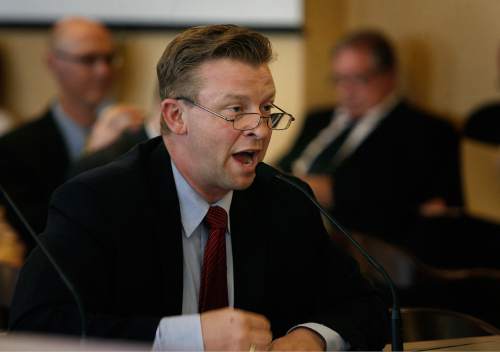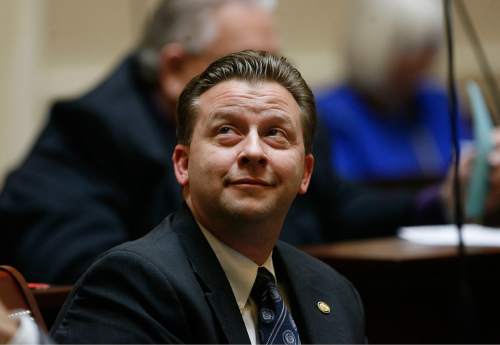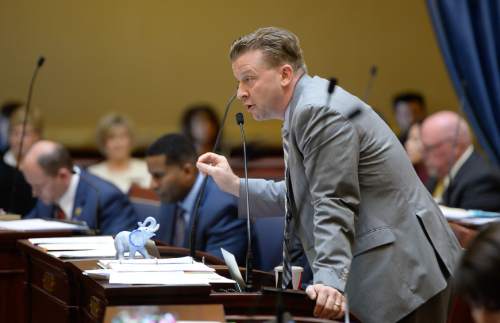This is an archived article that was published on sltrib.com in 2015, and information in the article may be outdated. It is provided only for personal research purposes and may not be reprinted.
State Sen. Todd Weiler has asked the lieutenant governor's office for a formal determination on whether he could become a Republican nominee by gathering signatures, potentially bringing to a head the dispute between the party and elections officials.
"A lot of my colleagues have called and asked me these questions, and I've given them my opinion, but my opinion doesn't count," the District 23 Republican said. "Candidates are entitled to know the lay of the land so they can plan accordingly. And right now, everything seems to be up in the air."
In the letter, Weiler said he plans to begin gathering signatures on petitions in January to secure a spot on the Republican primary ballot. He also plans to seek the nomination through the party's convention.
But Utah Republican Party Chairman James Evans has said the party can disqualify candidates who go the petition route because it is not allowed by party rules and Republican candidates have to sign a statement saying they will abide by the party's constitution and bylaws.
In his letter to Mark Thomas, the state elections officer, Weiler asks if he will be recognized as a candidate if he gathers enough signatures, whether the party can disqualify him if he takes that path and whether the party could lose its status as a "qualified" party if it refuses to let candidates take the signature-gathering route.
The dispute stems from language in Senate Bill 54 — a compromise between legislators and the Count My Vote group that pushed for primary elections to choose candidates.
The law says a candidate can choose to gather signatures to get on the primary ballot, can go to the party's convention and be chosen by delegates, or both.
But the law also gives parties the option of how to choose candidates, and the Republican Party rules only allow candidates to be chosen at the party conventions. Evans has said that, because the party can control whom it considers a member, anyone who gathers signatures would not be complying with party rules and could be disqualified by the party.
Thomas has said the office is inclined to disagree with Evans' interpretation, believing it is clear that the candidate gets to choose how to seek the nomination and the Legislature intended to provide that avenue.
If Weiler's letter prompts a formal opinion from the lieutenant governor's office, it could set the stage for either the GOP or a candidate who might be excluded from the ballot to sue the state to have the law clarified.
It is also possible the Legislature could hold a special session to clarify any conflict in the law.
Any resolution will need to come quickly. Office seekers can begin gathering signatures Jan. 1.
Twitter: @RobertGehrke







